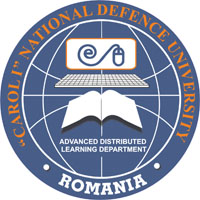FLIPPED CLASSES OR TAKING ADVANTAGE OF STUDENTS’ ADDICTION TO STATE-OF-THE-ART TECHNOLOGY
FLIPPED CLASSES OR TAKING ADVANTAGE OF STUDENTS’ ADDICTION TO STATE-OF-THE-ART TECHNOLOGY
Author(s): Ovidiu Ursa, Irina Gheorghiu, Claudia Elena DINU, Stefan COLIBABA, Odette Arhip, Anca ColibabaSubject(s): Education
Published by: Carol I National Defence University Publishing House
Keywords: flipped classroom; ICT; oral history; foreign languages; medicine
Summary/Abstract: This article is a study based on My Story, a project funded by the European Commission (under KA3 ICT) for the years 2011-2013, which was developed within an international partnership including institutions from Finland, Ireland, Lithuania, Romania, Slovenia and the United Kingdom. The project created a collection of pieces of oral history, life stories narrated by senior citizens and gathered by young people. The project made good use of the educational value of these testimonials, which recreated the recent history of Europe from different angles and transferred their lessons to the young generation. Oral history as an authentic combination of history, culture and language stimulates discussion and encourages reflection. It is a powerful learning tool. When oral history is supported by ICT, it undoubtedly becomes one of the best ingredients to increase students’ motivation to learn foreign languages. The method, flipped learning, highly encourages a student-centred learning environment, where the student is actively engaged and empowered to take the lead in the learning process. The flipped classroom asks teachers to give up their leading role in teaching in order to encourage students’ contributions. It also asks students to change from passive to committed participants and assume the responsibility for their learning. The paper focuses on the method, which uses videos as the main channel of content delivery and which was applied to students studying at the School of Medicine, Iasi. It analyses the activities carried out during the flipped classes as well as the benefits highlighted by teachers and students (increased student-teacher interaction, increased student responsibility for their learning, increased student motivation and participation in classes).
Journal: Conference proceedings of »eLearning and Software for Education« (eLSE)
- Issue Year: 11/2015
- Issue No: 03
- Page Range: 409-415
- Page Count: 7

